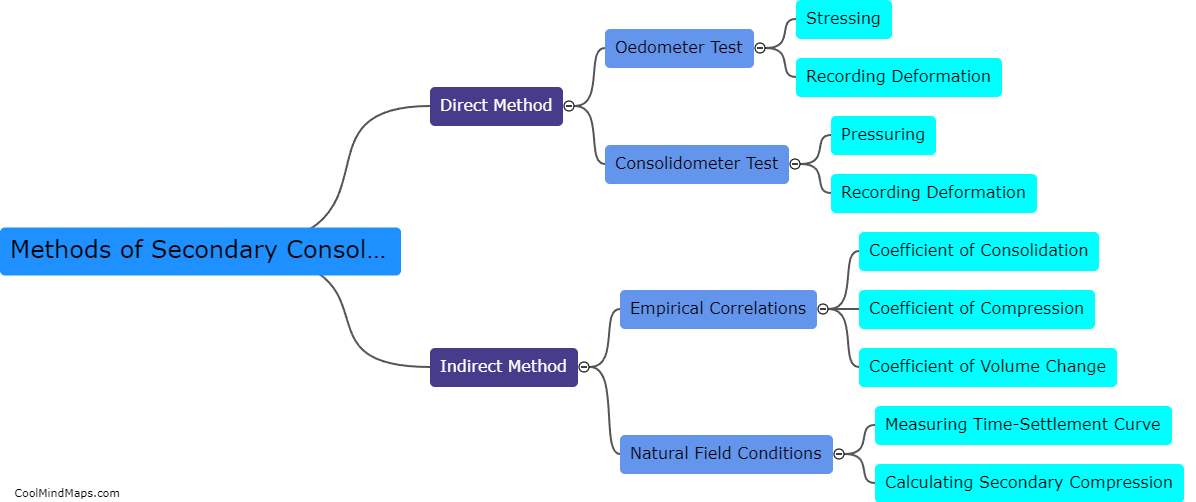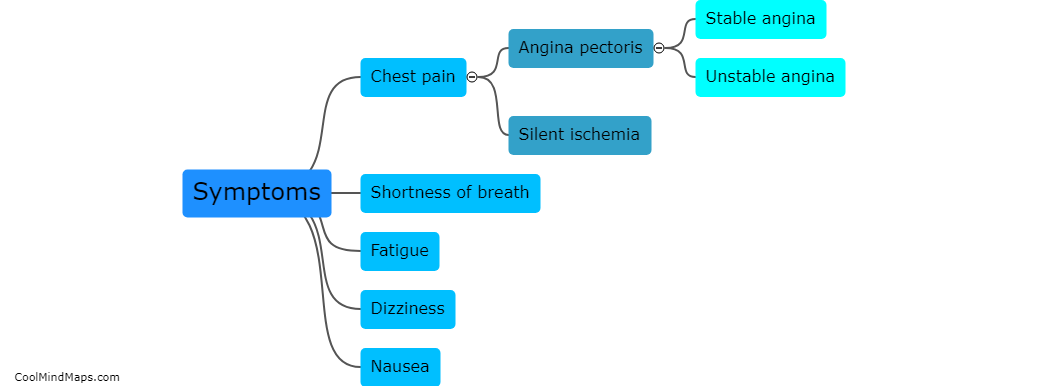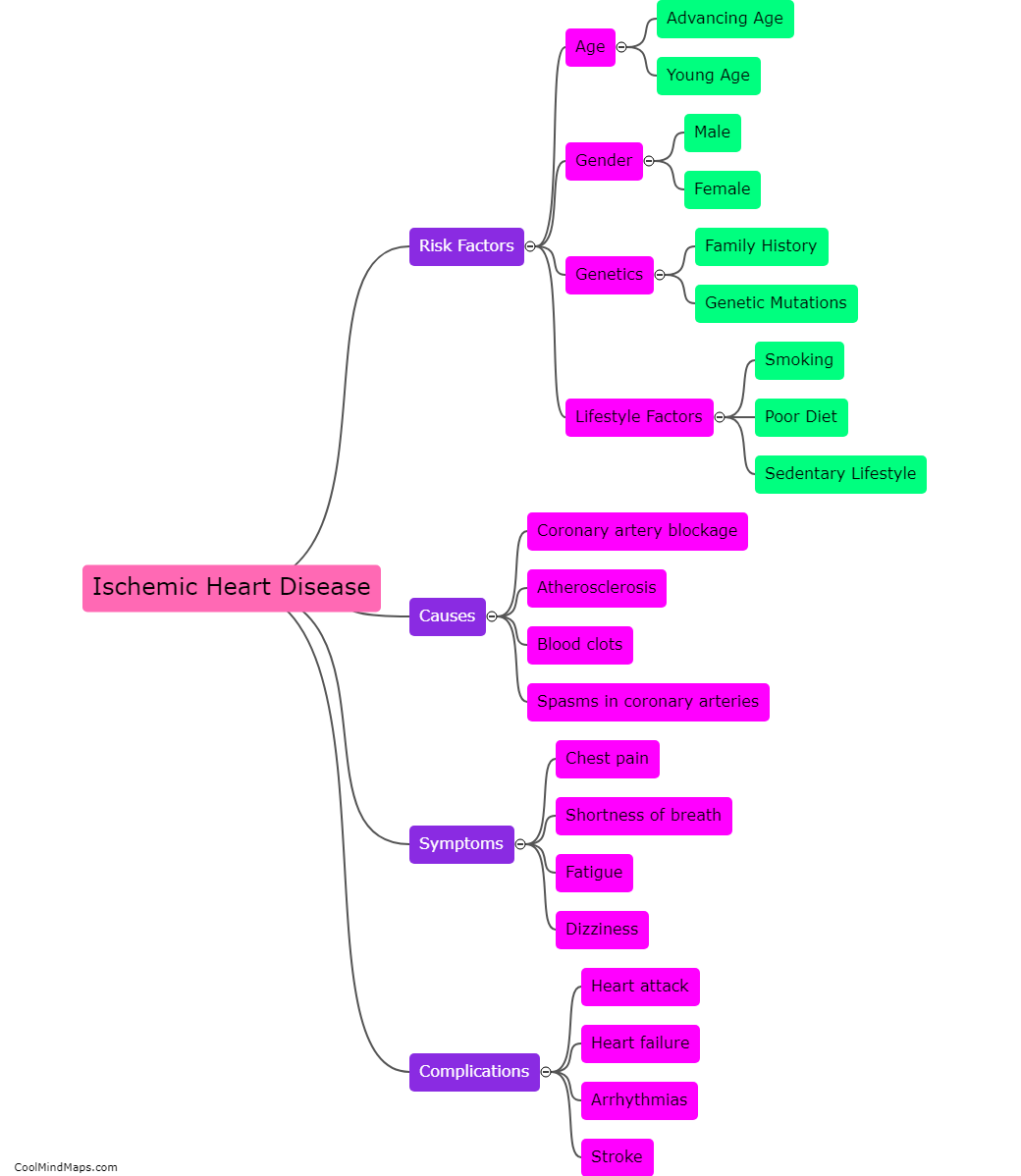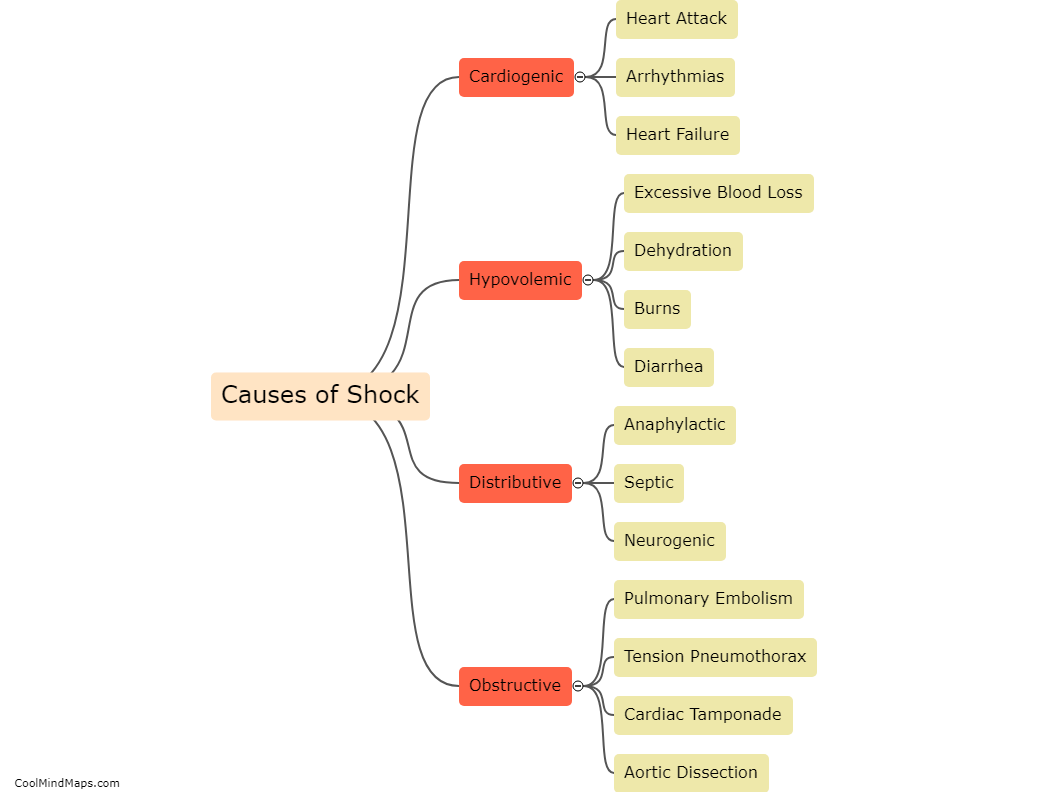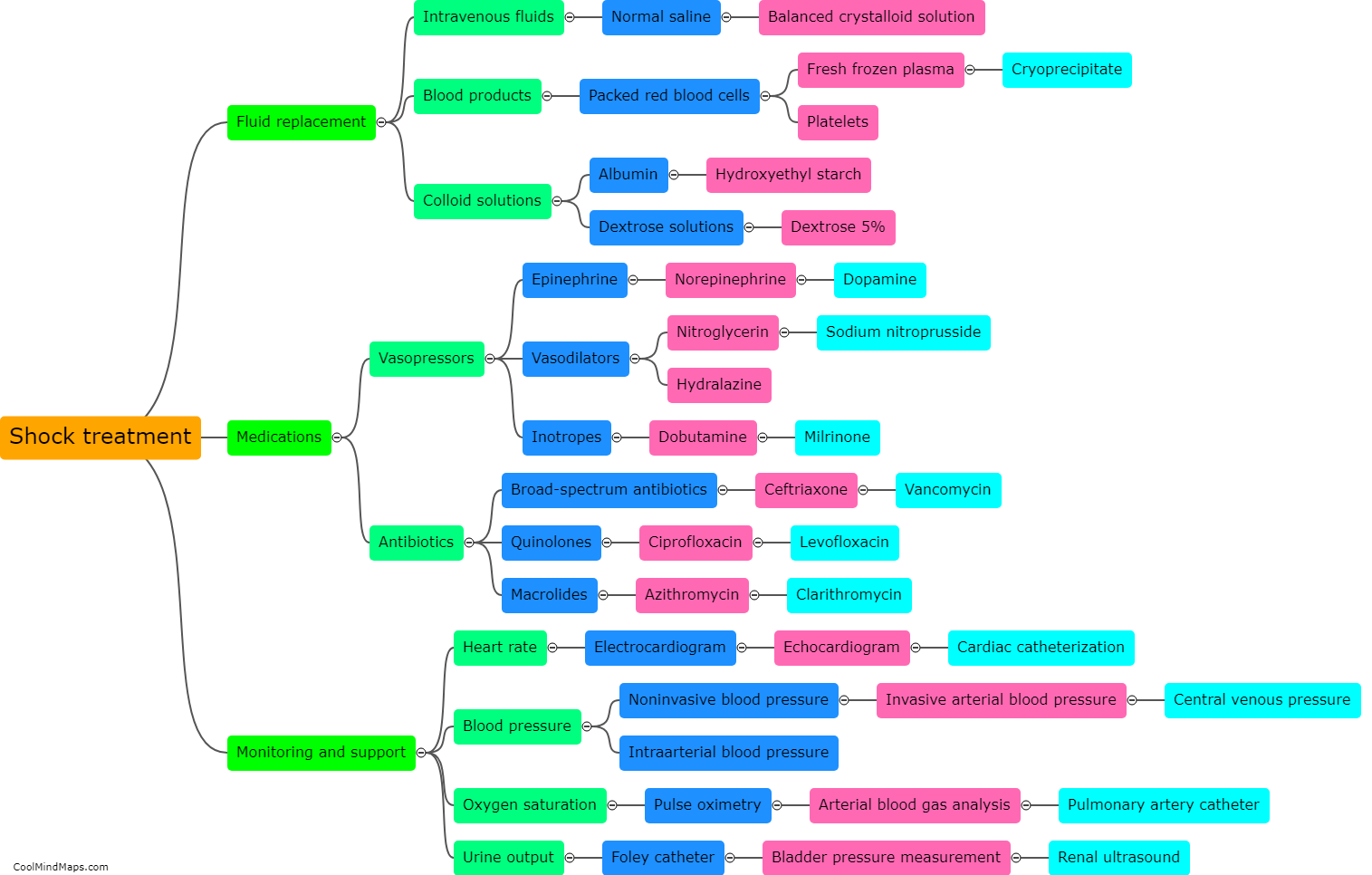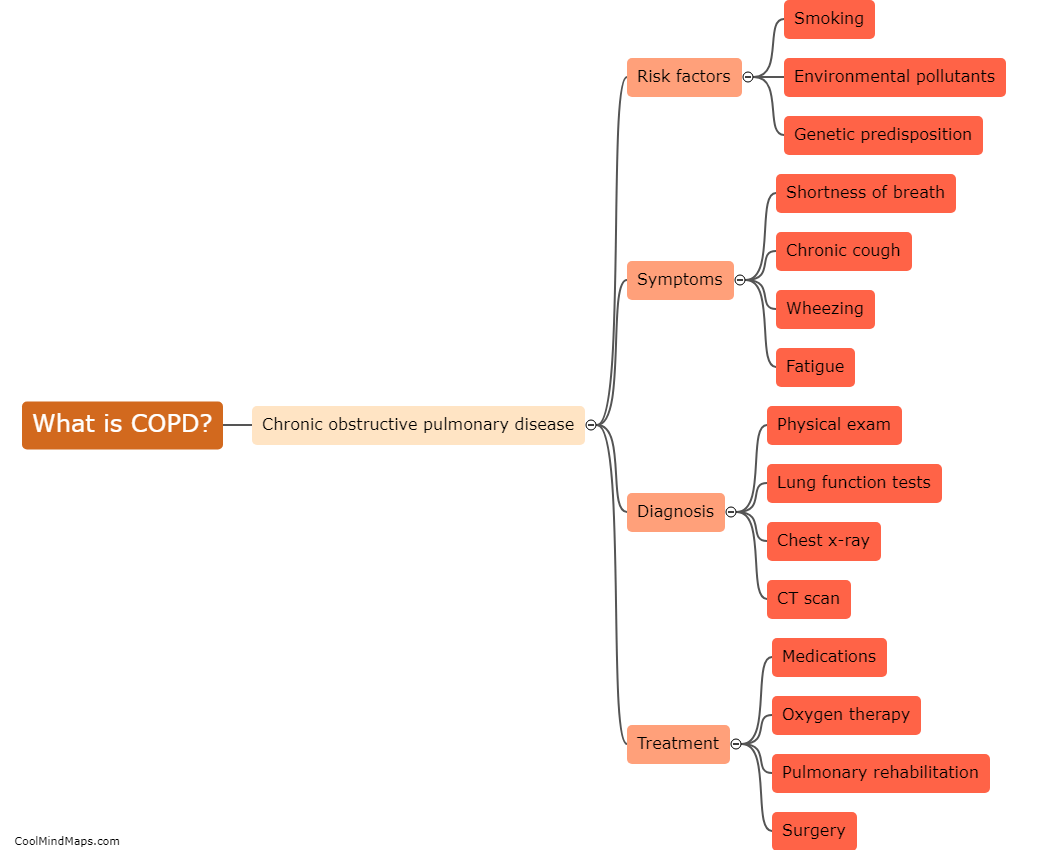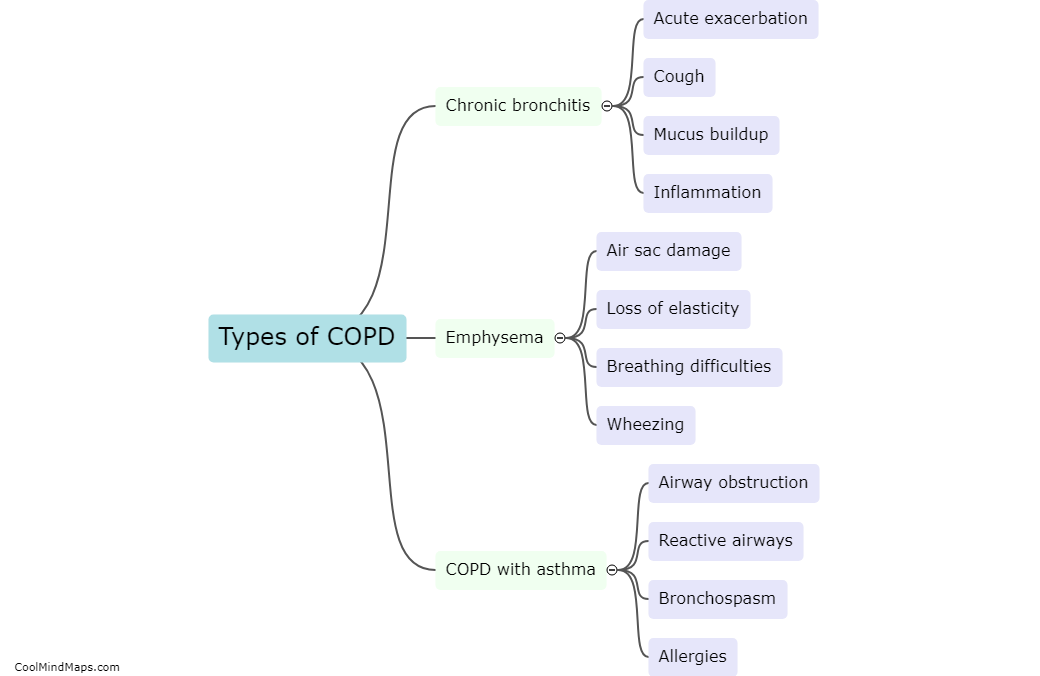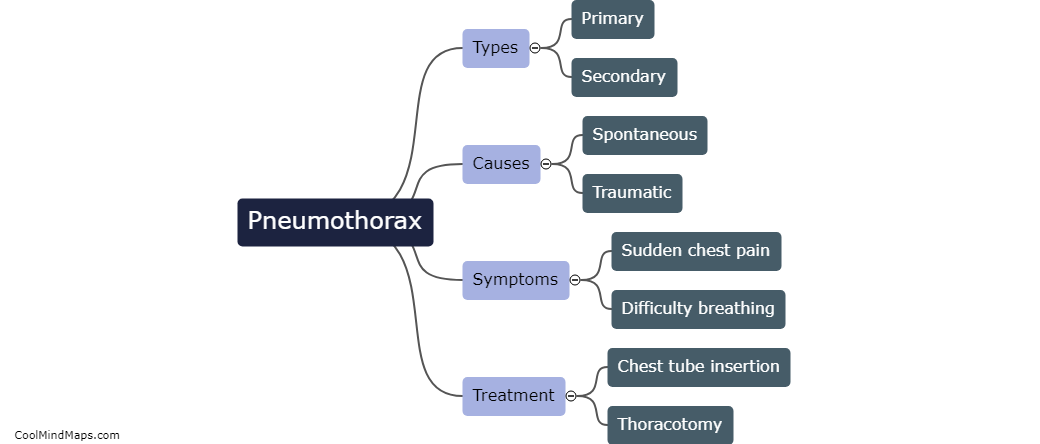What is chronic obstructive pulmonary disease?
Chronic obstructive pulmonary disease (COPD) is a progressive lung disease that obstructs airflow and breathing. It is typically caused by long-term exposure to irritants, such as cigarette smoke or air pollution. The two main forms of COPD are chronic bronchitis, which involves a chronic cough with excessive mucus production, and emphysema, which causes the destruction of the air sacs in the lungs. Symptoms of COPD include shortness of breath, wheezing, chest tightness, and frequent respiratory infections. Although there is no cure for COPD, early diagnosis and management can help alleviate symptoms and slow down the progression of the disease. Treatment options typically include medication, lifestyle changes, such as quitting smoking, pulmonary rehabilitation, and in severe cases, oxygen therapy or surgical interventions.

This mind map was published on 19 July 2023 and has been viewed 179 times.

